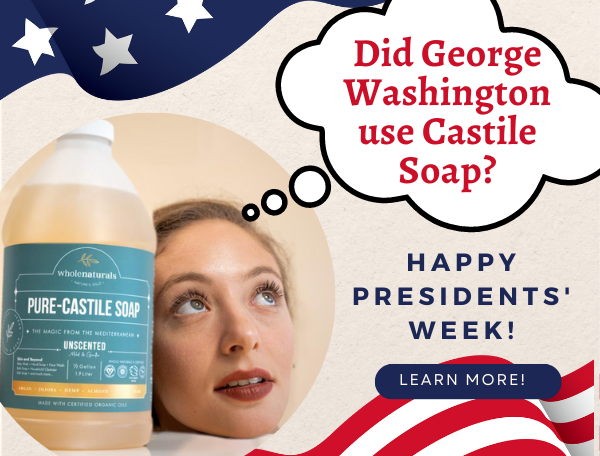How Do I Stop My Hands From Getting Dry in the Winter?
- Alex & Yohan
- Feb 23, 2023
- 3 min read

My Dear Readers,
Each winter I suffer from chapped, dry and red hands with painful cracks around my knuckles. Frequent hand washing, and using alcohol-based sanitizers (especially since Covid) are definitely the cause of this problem. Since I’ve been using Castile Soap, I’ve noticed that I'm not suffering as badly this winter.
Swap the Soap
Many soaps are made with Sodium Lauryl Sulfate, SLS. While I know that SLS can be helpful to get rid dirt, it can be drying. Soaps with anti bacterial properties contain chemical antimicrobial agents like Tricoslan and Benzethonium chloride. While the alcohol kills more than 99.99% of germs on contact by dehydrating the bacteria; unfortunately it also has the same dehydrating effect on the hands. One of the main features of Castile Soap is that it’s not made with toxic chemicals. It's made from certified organic carrier oils that clean surfaces (including hands) by lifting off dirt, grime, and pathogens including bacteria and viruses.
Is Whole Naturals Castile Soap Anti-Bacterial?
First let’s define what it means to be "anti-bacterial”. Nearly every kind of soap is made from fats, and oils and often lye (Potassium Hydroxide) to help the saponification process. Not all soaps are made the same, and not all soaps are meant for use on our skin.
Now, Let’s talk soap molecules. When soap is combined with water, free-floating charged atoms attract dirt and do their job as a cleaning agent.
WholeNaturals Castile soap has the best qualities of a natural soap and making it a great cleaner – from hands to feet – from kitchens to showers!! Castile soap works because it attaches to dirt and germs and rinsing them away, leaving behind a clean surface.
But here’s the best part. When you use WholeNaturals around your house, you don’t need to worry about using soaps that are harsh on your skin. Castile soap is gentle enough for your hands, yet strong enough for your dishes, floors and even laundry.
How do you keep hands from drying out?
The CDC recommends using WARM (not hot) water to clean hands. The hotter the water is, the more oils and moisture are removed. What’s more important is TIME. Wash your hands for around 20 seconds. With my offspring, we sing the alphabet song to help pass the time. Here are some additional recommendations:
Use mild, unscented soap and lotion.
Wash with warm, not hot, water.
Moisturize right after washing, when hands are damp.
Pat, don't rub, hands dry.
Stay hydrated and wear gloves when going outside.
As a family with allergies, we often use unscented, oil-based moisturizers.
What about Essential Oils?
Essential oils hold a prominent place in traditional and folk medicine around the world. Some varieties of essential oils (on their own) have antibacterial properties as they effectively destroy several bacterial, fungal, and viral pathogens. Antibacterial products kill the germs but don't remove them, leaving them on the surface you just cleaned. Castile soap does not "kill" germs as an antibacterial does, but rather works to bind with the germs to get rid of them, So the winning combination is: essential oils, with antibacterial properties that kill germs, and Castile soap that removes them from surfaces. Essential oils are a great way to customize and enhance your Castile Soap experience.
What's the takeaway? We know the importance of washing our hands to minimize the spread of germs and infections. We also know that traditional soaps can be drying, and that we often expose our hands to harsher soaps while washing dishes, doing laundry and general household duties. It's easy to see the benefits of swapping every soap in your home for Whole Naturals Castile Soap.
Please feel free to share any suggestions for how YOU keep your hands soft and supple during the winter.

P.S. Download our free ebook by clicking here: Please enjoy our favorite foaming hand soap recipe:





Comments